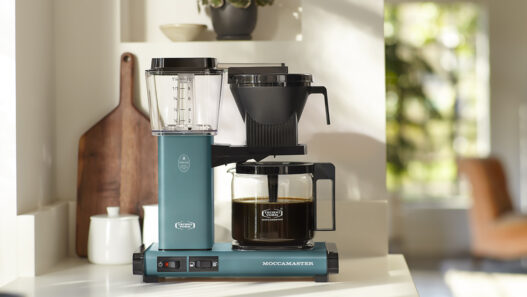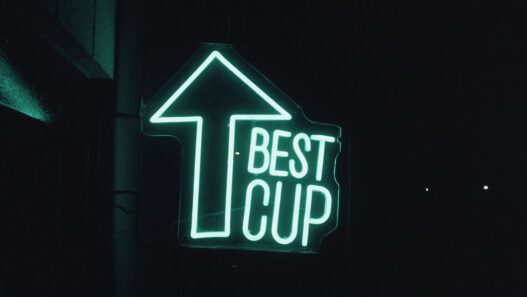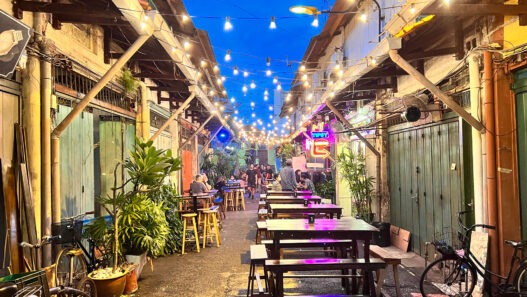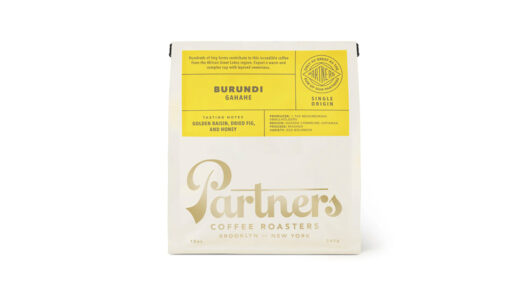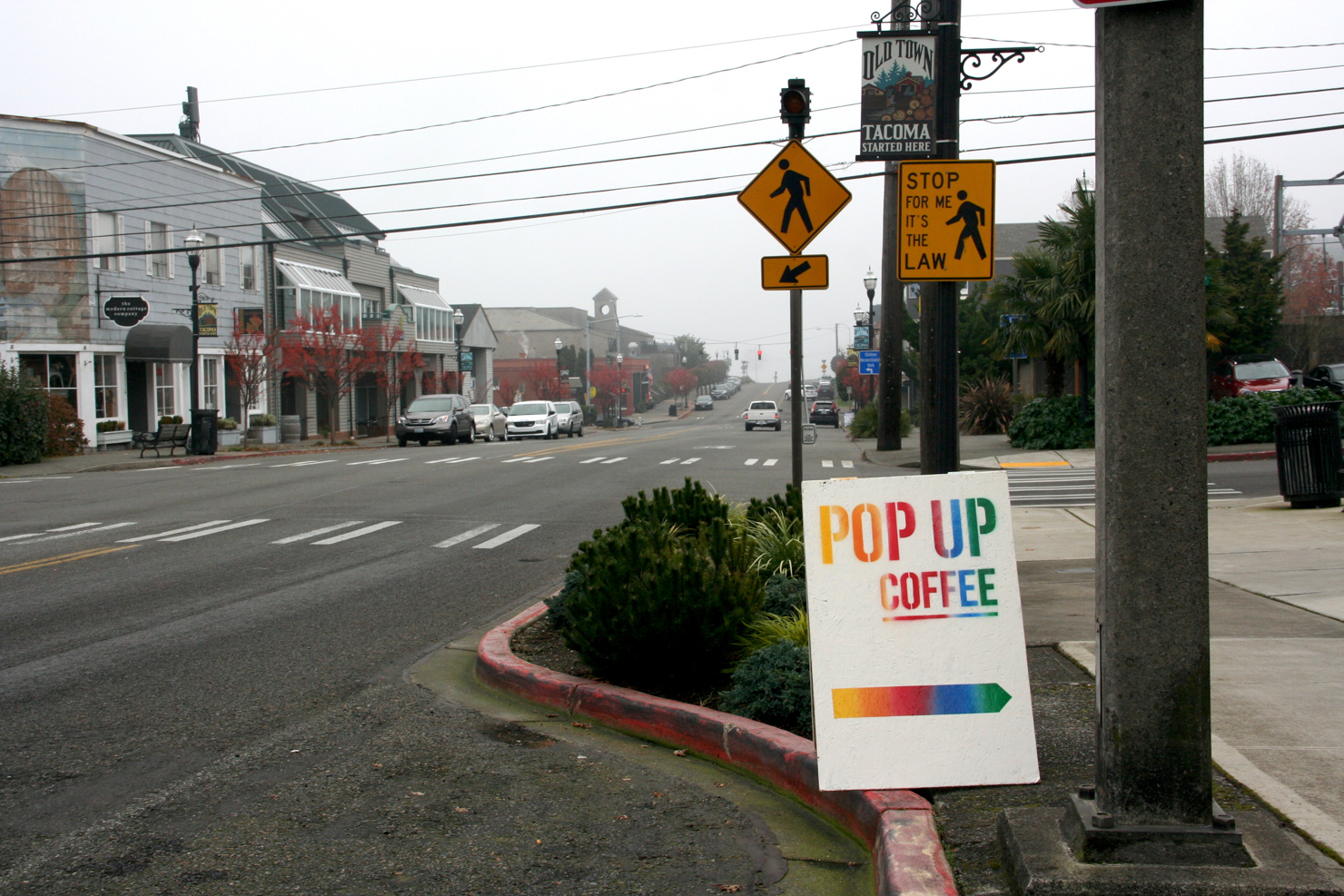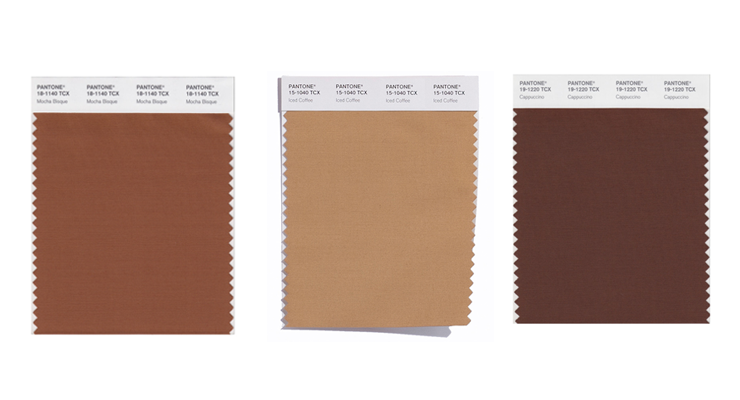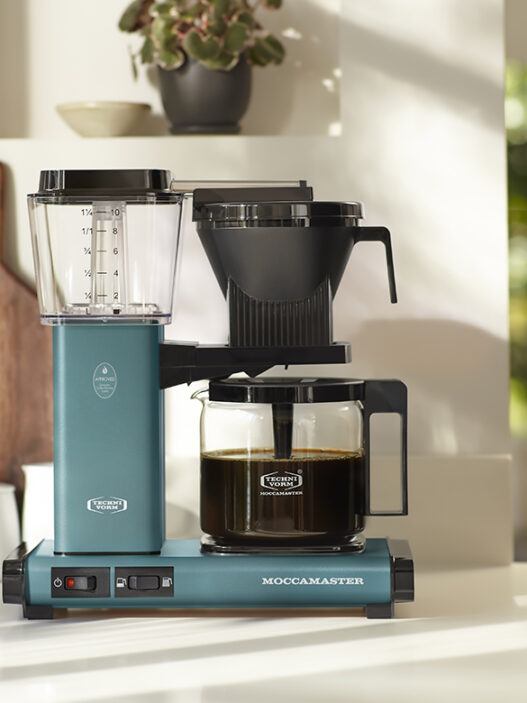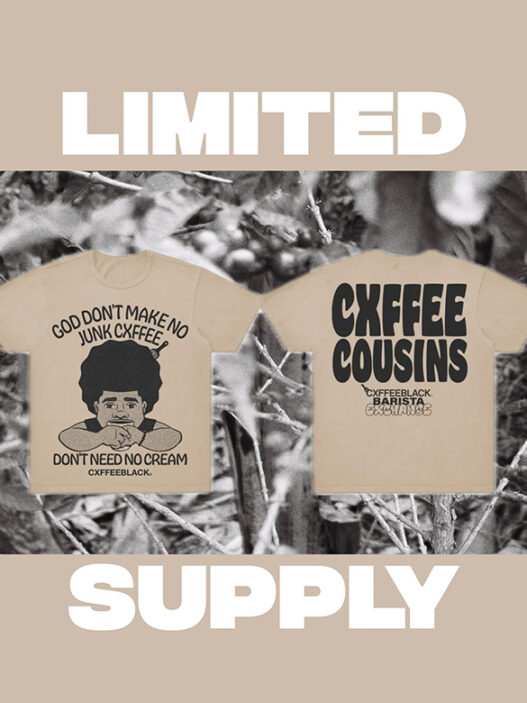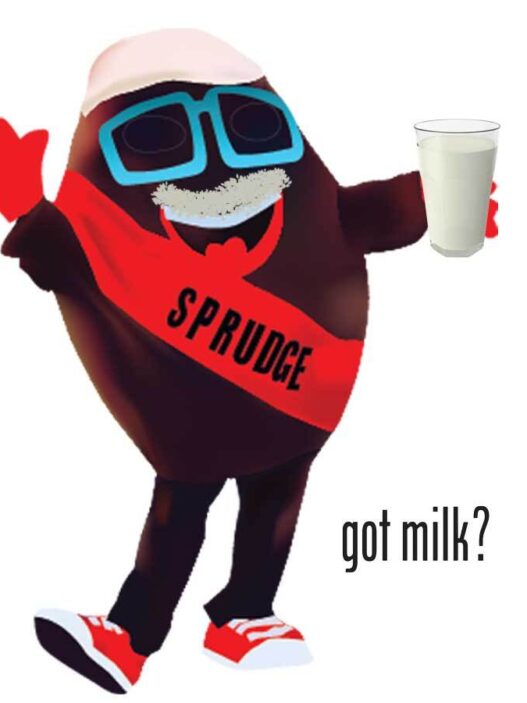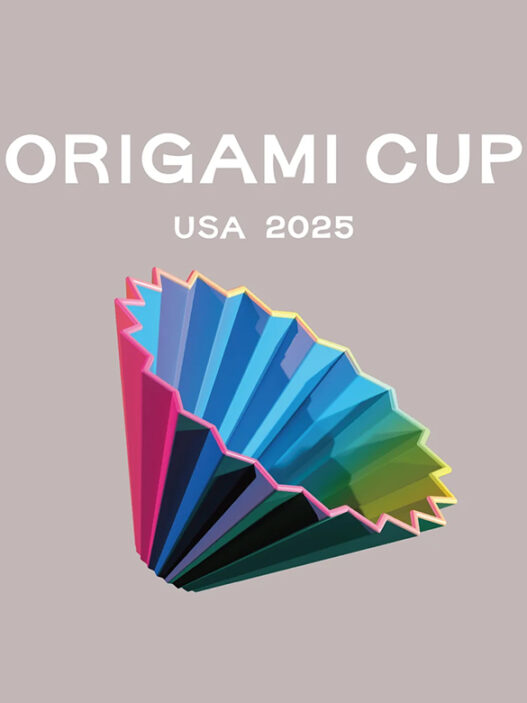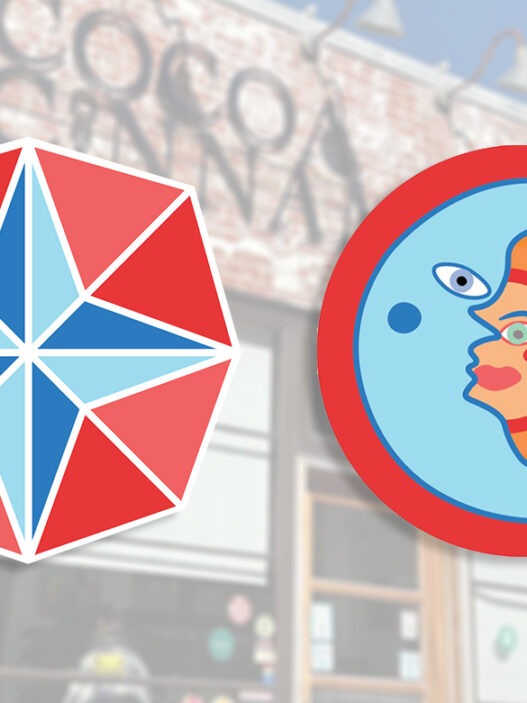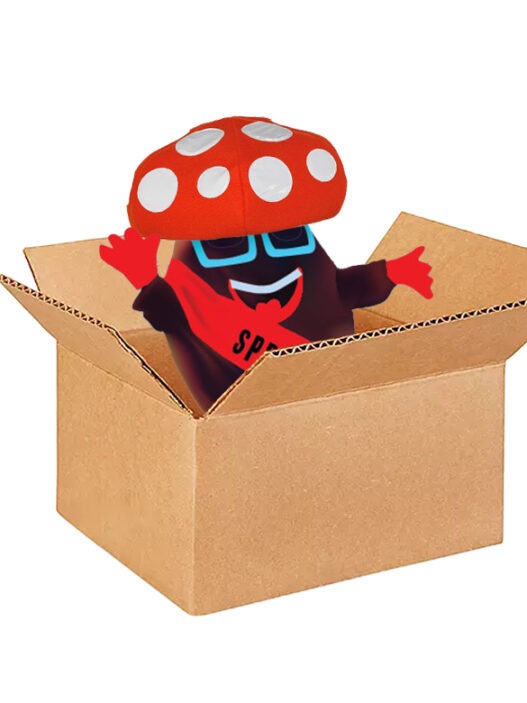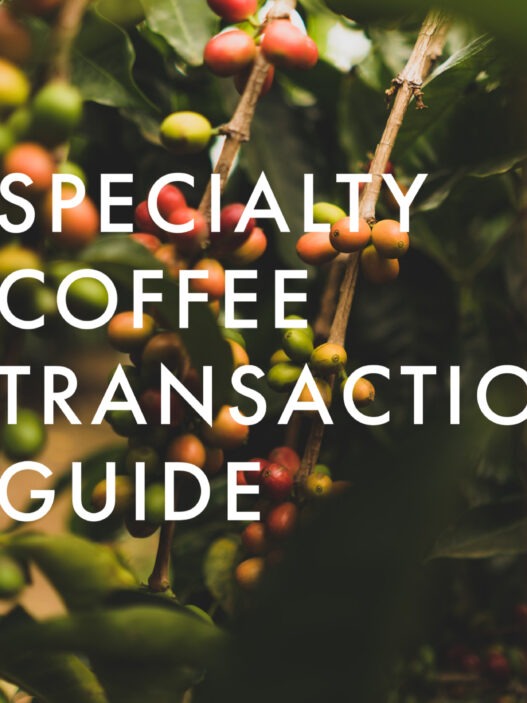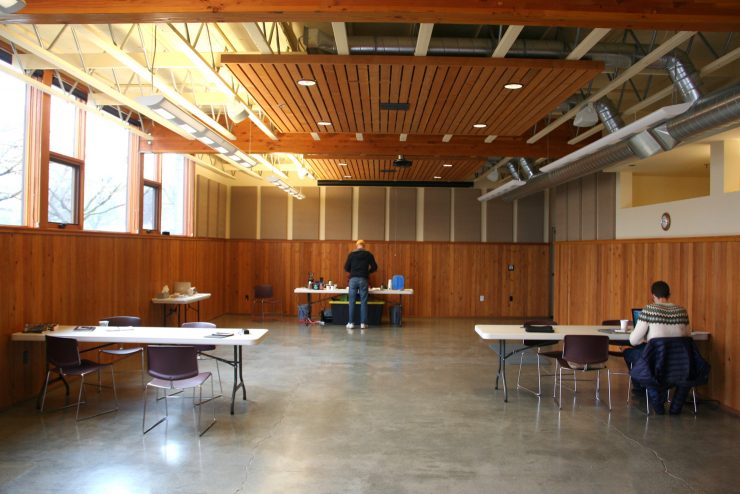
It’s gray, foggy, and just wet enough in the air that you need a rain jacket. Welcome to the Pacific Northwest. On the corner of 30th and Carr Streets in North Tacoma, a beautiful wood building houses the headquarters of The Mountaineers, the second-oldest branch of this organization devoted to helping people explore, conserve, and learn about the wild lands of the Pacific Northwest.
But I’m not here to hit up the climbing wall, or sign up for a Wilderness First Aid course. I am here for coffee.
I’m visiting Pop Up Coffee, launched in October, and devoted to a new style of coffee business; the pop-up coffee bar here in the lobby of The Mountaineers building is just one of three locations in the city.
I don’t see the ordinary signs of specialty coffeedom. There are no succulents in glass dishes, no exposed brick, no barista in a handmade denim apron. There’s just a foldable table, two ceramic cone brewers, two electric Hario kettles, a few bags of coffee, a stack of paper cups, and a barista in a flannel shirt. Ok, he has a beard, but we are in the Pacific Northwest after all. Other than that, this space is quite unlike any specialty coffee setup I have been in lately.
It’s refreshing. So is the business model.
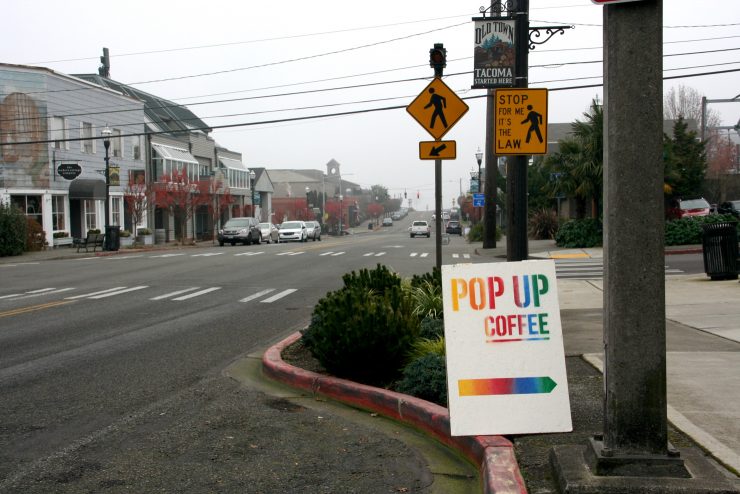
Pop Up Coffee was set up to solve multiple problems. First, as Jason Atherton, its founder, tells me, was to provide quality coffee. “It’s hard to find great coffee,” Atherton said, particularly in Tacoma. Second, in Tacoma, there are a lot of empty storefronts, which are bad for cities, and can, as he points out, lead to crime and vandalism. Utilizing these empty spaces is a savvy business move, but it’s also a community-minded one.
The idea is simple: pop-up style coffee bars maximize on space that would otherwise go unused, and provide an easy point of entry for potential entrepreneurs. In the Mountaineers building, the coffee table sits in an event space, regularly used in the evenings, but rarely in the morning. In downtown Tacoma, the other two Pop Up Coffee spots are at the Children’s Museum and inside Theatre on the Square on Broadway. “We work closely with a Tacoma nonprofit called Spaceworks,” says Atherton. “Spaceworks activates empty retail spaces with local and tasteful art installations. We are taking it one step further by opening pop-up cafes in these spaces. Our cafes activate the neighborhood and create a sense of community, making the area safer, more walkable, and reducing crime.”
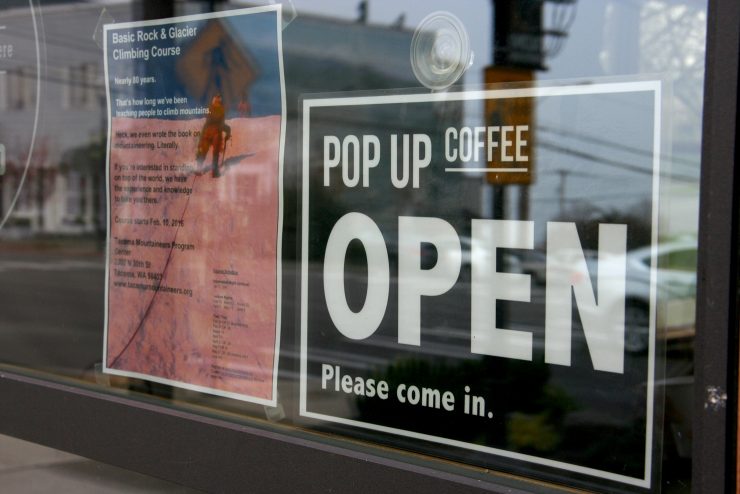
This business model is meant to grow, creating opportunities around Tacoma, which Atherton sees as “a fantastic second city like Brooklyn or Oakland.” He continues: “we created a very simple, low-cost cafe that is easy to scale. We only serve brewed coffee on minimal equipment to make it easy to open new cafes. This allows us to open many new locations and make great coffee much more accessible. We are essentially creating little coffee oases all around town.”
Come January, they are planning on opening 10 new cafes across the city.
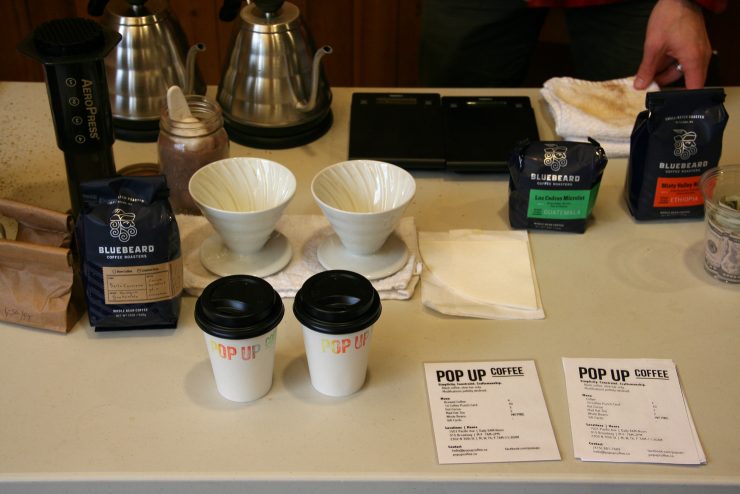
The company’s core values are “simplicity, constraint, and craftsmanship,” and are perfectly paired with a gentle reminder on the menu: “Black coffee, slow bar only. Modifications politely declined.” This isn’t about creating a pretentious coffee space; quite the opposite, in fact. At Pop Up Coffee, everything is pared down, to put the focus on the coffee and the community that it attracts. “We are cutting out the clutter to make space for genuine interaction and beautiful tasty experiences,” says Atherton.
Bearded barista Ben Smith-Chenovik prepares my coffee, a Misty Valley Natural Ethiopia from local Tacoma roaster Bluebeard Coffee Roasters, Pop Up Coffee’s featured roaster for November. (In its opening month, Pop Up Coffee featured Heart Roasters.) As he hands me my coffee, we continue talking and he mentions that he’s a musician. It’s actually his music that we are listening to—an album called “Pacific Natura,” beautiful piano solos all inspired by specific places around the Pacific Northwest.
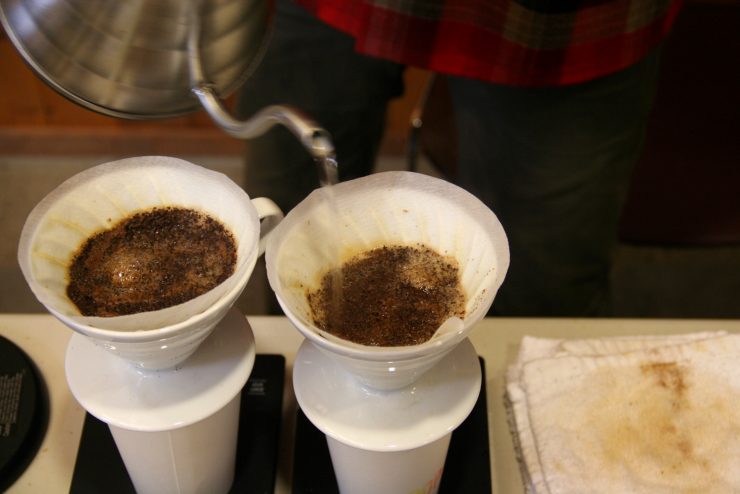
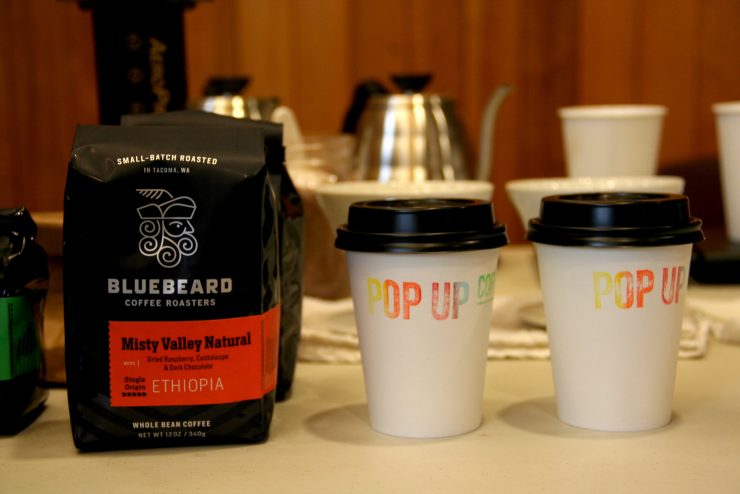
We talk about the potential of not only using the space as a place to make coffee, but a place that’s focused on collaborative endeavors; one where people can come together for art, music, and beyond. “I think this is the future of business,” says Smith-Chenovik. But while it might be the future, it’s also what a lot of us from the Pacific Northwest remember from the coffee houses of a few decades past—community hubs that were full of thriving culture. It’s nice to see things coming full circle.
Anna Brones is a Sprudge.com staff writer. Read more Anna Brones on Sprudge.







